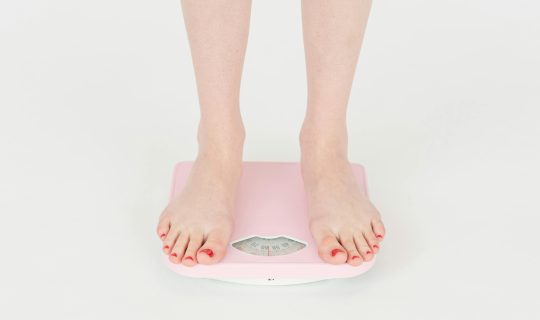Ozempic, Wegovy and other GLP-1 agonists — often referred to as weight loss jabs — have become almost impossible to ignore. They’re widely promoted for appetite control, weight loss and improved blood sugar regulation, and for many busy women they seem like a welcome shortcut when trying to lose some extra weight (not discussing here…
How Excess Testosterone Can Lead to Weight Gain in Women?
by Lucia Stansbie
High testosterone levels in women can lead to weight gain, especially around the belly. This is common in conditions like polycystic ovary syndrome (PCOS), menopause, and from certain types of birth control. The key to managing this is balancing hormones and improving insulin resistance, which can be done through proper nutrition and supplements.
Testosterone and Weight Gain in Women
Excess testosterone can cause insulin resistance, making it harder for your body to process sugar. This can lead to weight gain, especially in the abdomen. The most common cases of high testosterone in women are seen in PCOS and menopause, both of which are linked to hormonal imbalances.
- PCOS and Testosterone
- Menopause and Testosterone
- During menopause, estrogen and progesterone levels drop, but testosterone stays relatively high. This shift in hormones leads to more fat around the abdomen and upper body. Hormone therapy may help balance testosterone and improve weight management.
- Birth Control and Testosterone
- Some birth control pills, like those containing androgenic progestins (testosterone-like hormones), can increase testosterone and cause insulin resistance. This leads to weight gain. On the other hand, anti-androgenic birth control can lower testosterone and promote weight loss.
How to Lower Testosterone with Diet
Lowering testosterone levels through nutrition can help reduce weight gain and improve overall health. Here are some key strategies:
- Eat More Fiber: Fiber helps the body eliminate excess hormones. Include plenty of fruits, vegetables, and whole grains in your diet to support this process.
- Choose Low Glycemic Foods: Avoid foods that spike your blood sugar, like sugary snacks and refined carbs. Instead, choose whole grains, legumes, and vegetables, which help keep insulin levels stable and reduce testosterone.
- Add Healthy Fats: Healthy fats, such as those from avocados, olive oil, and nuts, can support hormone balance and reduce testosterone.
Supplements to Help Lower Testosterone
Along with a healthy diet, certain supplements can help lower testosterone and support weight loss:
- Spearmint Tea: Drinking spearmint tea has been shown to lower testosterone levels and reduce symptoms like acne and excess hair growth.
- Inositol: This supplement can improve insulin sensitivity and lower testosterone, especially in women with PCOS.
- Zinc: Zinc reduces the conversion of testosterone into its more potent form, which can help manage symptoms of high testosterone like weight gain.
- Omega-3 Fatty Acids: Omega-3s, found in fish, flaxseeds, and walnuts, help lower inflammation and improve insulin sensitivity.
- Vitamin D: Low vitamin D levels are linked to higher testosterone and insulin resistance. Getting enough vitamin D from sunlight or supplements can help balance hormones.
Final Thoughts
High testosterone levels in women can make it harder to lose weight, especially around the belly. However, by focusing on a diet rich in fiber, healthy fats, and low-glycemic foods, you can improve insulin sensitivity and lower testosterone. Supplements like spearmint tea, inositol, and zinc can also help balance hormones and support weight loss.
For long-term success, addressing both nutrition and hormonal balance is key to managing weight gain related to high testosterone. Consider working with a nutritionist to tailor these strategies to your individual needs.



